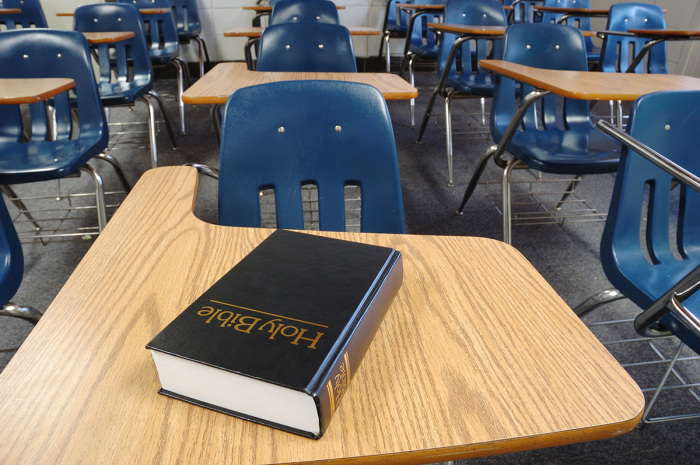GOP, Christian conservative members vote against curriculum
By Ian M. Giatti, Christian Post Reporter Wednesday, November 20, 2024

The Texas State Board of Education moved a step closer Tuesday to final approval of a state-authored elementary school curriculum that includes biblical teachings for elementary school students statewide.
The board’s 15 members voted 8-7 in favor of preliminary approval to Bluebonnet Learning, a curriculum proposed earlier this year by the Texas Education Agency (TEA) for use in K-5 public school classrooms.
Notably, three Republicans, including board member Pam Little (R-Fairview), a self-described Christian conservative, voted with the board’s four Democratic members against the curriculum. Little was re-elected to another two-year term on the Republican-led panel earlier this month.
While the board is set to hold an official vote on the curriculum on Friday, members will have until late Wednesday to submit any revisions in response to concerns raised by both board members and the public. Although the vote is expected to move forward, board members can change their votes until the official decision.
Pending final approval, nearly 2.3 million K-5 students in Texas will be taught using the new curriculum.
The vote followed a contentious public hearing session on Monday, which drew a number of supporters and opponents of the curriculum.
The curriculum provides instructional guidelines for K-5 teachers and includes lessons on “the early history of Christianity, with selections from the New Testament books of the Christian Bible providing context on beliefs about Jesus of Nazareth.”
In addition to explaining its use of both the terms BC/AD and BCE (before the Common Era) and CE (of the Common Era), the curriculum includes studies such as “Christianity and the Roman Empire,” which has a stated reading objective for students to “explain how Jesus of Nazareth’s life impacted the Roman Empire.”
In a statement to CP, Little said: “I don’t think the Bluebonnet Learning will teach our students to be good readers,” adding, “I firmly believe we should teach our students the Biblical values of the Golden Rule, Good Samaritan, etc.”
Little pointed to what she views as a flawed phonics portion of the curriculum, which she said “starts students out with just sounds of letters and does not introduce the names of letters until later in the year” and “doesn’t follow the format” of state educator prep programs.
“The amount of content is overwhelming and takes away time from students practicing reading, which helps build fluency, vocabulary and comprehension,” she added. “The program expects kindergarteners to sit for over 30 minutes at a time listening to content on various subjects.”
Little shared two images of links to what she described as “inappropriate reading suggestions for students,” one of which appeared to be an image of the LGBT-themed book Love Makes A Family by Sophie Little (no relation).
However, a CP search of the Bluebonnet curriculum was unable to locate that title on the official Texas curriculum website.
Supporters have praised the integration of passages from the Bible into the curriculum as notable literary works, while critics say the lessons are heavily skewed toward Christian teachings. They argue that the curriculum could alienate non-Christian students, lead to bullying and undermine the separation of church and state outlined by the Establishment Clause of the First Amendment.
In September, Rep. James Talarico, D-Austin, equated the curriculum with Christian nationalism, which, in the congressman’s view, amounts to “elevating our religion over others — dominating our neighbors instead of loving them as ourselves.”
During a House Public Education Committee meeting in August that began with testimony from Texas Education Agency Commissioner Mike Morath, Talarico raised concerns about what he described as the “separation between church and state” and what he views as a bias toward Christianity in school curriculum materials.
One of those concerns, said Talarico, is what he sees as a distinction between “preaching” and “teaching.”
“I think kids should learn about the major world religions in school, including Christianity,” he told CP. “They need it to understand the world, understand literature, understand their own culture and other cultures. But when the state usurps the role of the church — preaching Christianity instead of teaching it — the government violates the constitutional separation of church and state found in our First Amendment.”
Upon final approval, the curriculum will be implemented in school districts by August 2025.
